
"SPACE SHARKS!"
August 18, 2014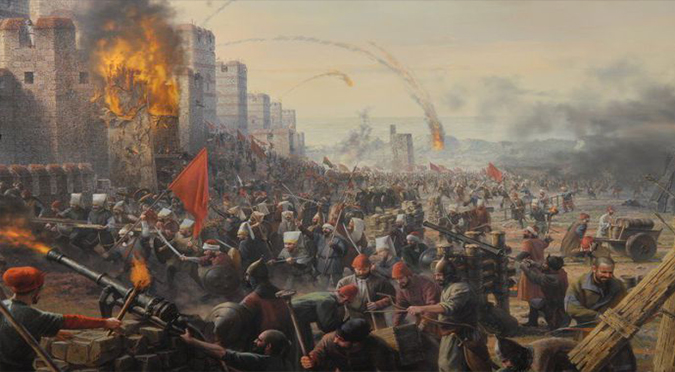
THE FALL OF CONSTANTINOPLE
August 29, 2014King John I of England 1167-1216
‘The Magna Carta’ – drafted and signed: June 15th, 1215
Throughout history there have been many terrible rulers (several of which I’ve covered on this blog), but perhaps none more vilified than King John of England (except for maybe Richard the Third?). After all, King John was Robin Hood’s nemesis! But does he really deserve such a tarnished reputation?
“John was a tyrant. He was a wicked ruler who did not behave like a king. He was greedy and took as much money as he could from his people. Hell is too good for a horrible person like him.” – Matthew Paris, C13th chronicler.
There’s no denying King John sucked at his job, but it’s worth noting that there were a lot of factors completely beyond his control that made governing medieval England that much more challenging. King John had a couple things going against him right from the start. He was often compared to his more ‘photogenic’ brother (King Richard the Lionheart), and the people blamed the bad economy on John while it was clearly the last three administrations that had bankrupted the country. Poor Johnny had the deck stacked against him.
He was simply the wrong monarch for the wrong century…

Feudal feuds and rising debt.
It all started with King Henry II (grandson of William the Conqueror). Henry Plantagenet and his wife, Eleanor of Aquitaine, had a total of four sons and three daughters. The daughters would be married off as was a typical of medieval chauvinistic customs. The sons on the other hand would come of age all vying for power, because there could be only one!
Henry’s bratty kids were so disloyal that they were dubbed “The Devil’s Brood”. (So less Brady Bunch more Manson Family.)
 The best way to describe these four boys is that each one represents one of the houses of Hogwarts: Richard (aka the Lion Heart) was obviously Gryffindor material, Henry Jr, who was often aloof and only cared about jousting, was clearly a Hufflepuff, Geoffrey, the cold and calculating, was certainly Ravenclaw bound, and little John was the creepy kid in the corner, biding his time – a perfect Slytherin candidate.
The best way to describe these four boys is that each one represents one of the houses of Hogwarts: Richard (aka the Lion Heart) was obviously Gryffindor material, Henry Jr, who was often aloof and only cared about jousting, was clearly a Hufflepuff, Geoffrey, the cold and calculating, was certainly Ravenclaw bound, and little John was the creepy kid in the corner, biding his time – a perfect Slytherin candidate.
King Henry chose the youngest, Prince John, as his successor, but the other three weren’t too happy about this. Eleanor encouraged the three oldest boys: Henry, Richard, and Geoffrey to rebel against their father (presumably because he refused to put the toilet seat down). Henry had his queen imprisoned for her treachery.
Meanwhile, Henry was macking on the French King (Louis VII)’s daughter, Princess Alys, who was betrothed to his son Richard btw. What’s more is that Philip Augustus (the future King of France) was actually Eleanor’s son from her previous marriage, Louis #7. Talk about the making of a good soap opera.

This family quarrel nearly divided the country in fourths until Lil Henry got sick and died, and Geoffrey was trampled during an unfortunate jousting accident. Richard continued his mud slinging campaign against his own dad, even joining up with Philip Augustus of France (his half brother), just to piss off his old man. This ludicrous conflict cost the barons and nobles of the country vast amounts of wealth, but no one really wanted to pull a Dr. Phil and tell them to get over it, at the cost of losing their head.
Eventually Henry gave in to the incessant nagging of Richard and said ‘Fine!’ and then promptly croaked.
His last words were to Richard, “May God let me live until I can have my revenge on you!”
Thus Richard ‘the Lion Heart’ inherited the throne.
The jealousy of Prince John

One year later, Richard got bored of being the King of England and joined the Third Crusade with his best buddy Phil. Richard didn’t exactly trust his lil bro, Prince John, so in his absence he left his ministers in charge to run the show and raise taxes to support his excursions abroad. Richard (the Lion Heart) spent most of his time away from his country, in fact he spent more time hanging out in France than England. And for some reason everyone loved him, except John.
Prince John was often referred to as ‘Lackland’, because he well… lacked land. John resented being treated like second rate and was sick of being made fun of behind his back. So in 1194, he attempted to usurp power while Richard was away, even turning Philip against him. ‘My brother is not a man to win land for himself if there is any resistance’, Richard was quoted before getting himself captured by the French and held for ransom.
(His mom bailed him out.)
 While Richard was locked away, John started a fund to release his brother… and kept it all for himself. Richard spent the next 5 years fighting against Philip in his attempted conquest of Normandy. It was in 1199, during a minor skirmish at a French castle, that King Richard took a crossbow to the shoulder. It was discovered that the arrow was shot by a boy seeking revenge for his family. Richard gave the boy props for being hardcore.
While Richard was locked away, John started a fund to release his brother… and kept it all for himself. Richard spent the next 5 years fighting against Philip in his attempted conquest of Normandy. It was in 1199, during a minor skirmish at a French castle, that King Richard took a crossbow to the shoulder. It was discovered that the arrow was shot by a boy seeking revenge for his family. Richard gave the boy props for being hardcore.
Although Richard survived the wound, it was the gangrenous infection that did him in. Thus John finally got his wish… and immediately regretted it.
The paranoia of King John
Almost as soon as he inherited the throne, he became obsessively paranoid.
As King, John proved to be a pain in the *@$!&#, earning a reputation for greed, cowardice, vanity, and cruelty. He got a sick kick out of torturing others in creative ways, but never got his own hands dirty. He would lock accused ‘criminals’ away in dungeons to die of starvation, blinding his prisoners with vinegar, hanging his subjects by their thumbs, and roasting people alive just for kicks. If he ever heard a rumor that someone had even hinted that his mother was fat, he’d not only drag them behind a horse for a few miles before hanging them, he’d do the same to their entire family, apparently sharing Steven Seagal’s definition of justice: overkill.

It is said that during King John’s coronation the crown both literally and figuratively did not fit, which I find amusing for some reason.
Speaking of King John’s completely ridiculous sense of (unbalanced / over the top) “justice”, he outrageously increased the fines for hunting deer and boar in the “King’s Forest” – which was basically the whole of England. These laws also extended to chopping fire wood, or carrying a bow, both very practical necessities to surviving in a time before supermarkets. The fines were anywhere from an obscene amount of gold to your basic everyday mutilation or an old school death penalty. Not only did King John vigorously enforce these penalties, he would go after the families of those who committed the deed. Unlike his predecessors, King John wanted all debts paid immediately, and when they didn’t pay, he simply took their land.
There were three reasons for the beefed up forest laws:
- John wanted all the deer meat to himself.
- John wanted all the moneys to himself.
- John was a jerk.
The modern equivalent would be getting a minor speeding ticket for going under the speed limit for $200,000 – and if you couldn’t pay it, you’d spend the rest of your life in prison while a SWAT team kicked down your neighbor’s door and looted their pantry. This prompted a spike in outlaws throughout Sherwood Forest… as well as an increase in the Sheriff of Nottingham’s paper work… not to mention a rather bizarre uprising in men in tights and Errol Flynn look-a-likes.

King John versus Robin Hood… and Shakespeare?
The original legend of Robin Hood, the story of a medieval outlaw who stole from the rich and gave to the poor, came about in the 1400’s, in the form of a ballad, “A Gest of Hobyn Hode”. One of the early versions of the tale has Green Arrow Robin Hood protecting Richard’s authority from the evil Prince John, while many of these tales show him completely disregarding the King’s forest laws.
Since becoming King, John had managed to rebuild the treasury and amass a huge personal fortune at the cost of loyalty.
Turns out, Robin of the Hood wasn’t the only one this side of London who was fed up with King John’s decrees. That short list included just about everyone under the King’s authority. He often threw debtor’s in prison, regardless of nobility or standing. This of course peeved a lot of barons who began grumbling about rebellion, a few even tried, unsuccessfully. This forced King John to constantly be on the move, traveling between one of fifty castles and hunting lodges around the country, stopping for only a few days at a time.
There were rumors that Geoffrey’s son, Arthur of Brittany, was being positioned to take his crown, as a result the paranoid King John had his nephew, the young Arthur, assassinated… he was 16. I’m told this was apparently a huge plot point in a little play called “The Life and Death of King John” written by some unknown bard…

WILLIAM (To Be Or Not To Be) SHAKESPEARE
King John vs Pope Innocent III
In 1205, when the Archbishop of Cantebury, Hubert Walter, passed away, John disagreed with the monks on who should be appointed as the new one. The monks elected Reginald, John wanted John de Grey, and the Pope (Innocent the Third – the evil mastermind behind the Fourth and Fifth Crusades) wanted them both to shut up and chose a third option: Stephen Langton. Johnny boy threw a tantrum and had Stephen banished from his realm.
In 1208 Pope Innocent III served King John an Interdict – meaning all church services (marriages, baptisms, and even funerals) were put on hold. So while the dead bodies piled up, the Pope then threatened England with Excommunication. This didn’t exactly go over well, seeing as it kinda sorta removed John’s authority to rule over his people, giving legit cause to rebellion. Faced with revolts from both home and abroad, the King was forced to crawl back to the Pope and beg forgiveness and let Mr. Langton come back as the new Archbishop. This move kinda backfired like an overflowing … John. Although he didn’t have much of a choice, by submitting to the Pope, it made him look like a wimp.

Comes with the power of excommunication!
John ‘Lackland’ loses even more land…
 Another person who didn’t give two stones about John’s authority was the King of France, our old friend, Philip. When Philip took claim of John’s English territories, King John marched an army into France and captured more than 200 barons and knights. 22 of his prisoners died of starvation. Suffice it to say, he treated his captives ‘poorly’. Instead of joining John’s cause, the other nobles turned against him and forced him out of the region.
Another person who didn’t give two stones about John’s authority was the King of France, our old friend, Philip. When Philip took claim of John’s English territories, King John marched an army into France and captured more than 200 barons and knights. 22 of his prisoners died of starvation. Suffice it to say, he treated his captives ‘poorly’. Instead of joining John’s cause, the other nobles turned against him and forced him out of the region.
The treasury was once against depleted from the conflicts in France where King John lost all of England’s formerly held territories. After being defeated by Philip Augustus in France, King John signed a truce, and returned to a very hostile country. The barons held a meeting with the King in London where they demanded that John confirm the Coronation Charter of Liberties from Henry the First.
THE MAGNA FAILURE
In 1215 the Barons united against John and threatened to overthrow the kingdom if John didn’t agree to their terms. “Why do not the barons, with these unjust exactions, ask my kingdom?” was King John’s sarcastic reaction to the baron’s demands. John was between a rock and a hard place with lots and lots of pointy-stabby-things. With the entire world against him, King John didn’t have much of a choice, but to agree to their demands.
 “King John, when he saw that he was deserted by almost all, so that out of his regal superabundance of followers, he scarcely retained seven knights… deceitfully pretended to a make peace for a time with the aforesaid barons…” – Roger of Wendeover, “Flowers of History”
“King John, when he saw that he was deserted by almost all, so that out of his regal superabundance of followers, he scarcely retained seven knights… deceitfully pretended to a make peace for a time with the aforesaid barons…” – Roger of Wendeover, “Flowers of History”
The barons drafted a 3,500 word charter, explaining exactly how things were going to go down from now on, known today as ‘The Magna Carta’ (or ‘The Big Charter’)
“John, by the grace of God, King of England, Lord of Ireland, Duke of Normandy and Aquitaine, and Count of Anjou, to his archbishops, bishops, abbots, earls, barons, justices, foresters, sheriffs, stewards, servants and to all his officials and loyal subjects, Greeting.” – Preamble to the Magna Carta.
The Magna Carta was drafted as a list of laws that EVERYONE had to abide by, including the King. Up until this point in history, this was practically unheard of and it changed things forever. Article 9 states – No one shall be subjected to arbitrary arrest, detention, or exile. A basic human right still regarded as paramount by the United Nations and many governments of the world today.
On the 19th of June, 1215, at Runnymede, on the River Thames, King John read over the fine print and (reluctantly) affixed his seal to the scroll, making the Magna Carta the new law of the land, limiting his royal power and securing the rights of his people. Problem was, King John then went behind their backs and whined to the Pope, claiming they made him sign it. Innocent declared, “The Charter with all its undertakings and guarantees, we declare to be null and void of all validity forever,” calling the Magna Carta “…not only shameful and base, but also illegal and unjust…”

The Barons weren’t just bummed out by this turn of events, they were mad as hell, and weren’t going to take it up the arse any longer: they decided once and for all to dethrone the King. Country wide riots broke out. In the midst of the chaos, King John raised an army from a few loyal knights (that he probably paid off) butchered the uprising in the north.
King John had lost his $#!&*.
The Siege of Rochester Castle
“These limbs of the devil [referring to King John’s soldiers] covered the whole country like locusts. Sword in hand they ransacked towns, houses, cemeteries, churches, robbing everyone, sparing neither women nor children. They put the kind’s enemies in chains until they paid a heavy ransom. Even priests at the altar were seized, tortured and robbed. Knights and others were hung up by their feet and legs, or by their hand, singers and thumbs, salt and vinegar were thrown into their eyes; others were roasted over burning coals and then dropped into cold water. None was released until they had handed over all the money they had to their torturers.”
If this is how he treated his people for speaking out, I can’t imagine what he did to the court jester…

The Archbishop allowed the rebels sanctuary, but the King had other plans for them. The vengeful King set his eyes on Langton’s pad: Rochester Castle.
About a hundred knights and a dozen crossbowmen were holed up in the fortress as King John brought on a relentless onslaught of catapults. Over the course of a month, five siege engines lobbed the castle walls with gigantic boulders. Alas, the defenders of the Magna Carta would not give in to such a tyrant’s wrath. When the King’s men ran out of rocks, John’s knights began to catapult dead bodies over the castle walls. When the defiant rebels still refused to surrender, the tyrannical King began digging operations under the 12 foot thick castle walls.
 The defenders were dangerously low on supplies. Out of desperation they killed and ate their beloved horses! (gross) Some of the rebels were starting to starve, a few began to give up and come forward, asking for mercy. John responded by chopping off their hands and feet. The dastardly King began to grow impatient, “We command that with all haste, by day and night, you send to us 40 bacon pigs of the fattest and those less good for the eating to bring fire under the tower.” Even after breaching the castle walls, their were still more barriers.
The defenders were dangerously low on supplies. Out of desperation they killed and ate their beloved horses! (gross) Some of the rebels were starting to starve, a few began to give up and come forward, asking for mercy. John responded by chopping off their hands and feet. The dastardly King began to grow impatient, “We command that with all haste, by day and night, you send to us 40 bacon pigs of the fattest and those less good for the eating to bring fire under the tower.” Even after breaching the castle walls, their were still more barriers.
Finally, eight weeks after the siege had begun, the last of the rebels gave up. In that time King John had lost control of his entire kingdom. He wanted nothing more than to hang every last one of them, but his advisers rightly cautioned him against any such actions that would make his people hate him even more than they already did. Meanwhile, the rebellious barons sided with France and proclaimed Prince Louis the new King of England as Philip conquered London.
Then, suddenly on October 18, 1216, King John died of dysentery, a complete and total failure. Overnight the rebellion lost its enthusiasm for a French king and changed sides to support John’s son, Henry III.
The rebellion against John crumbled as his 9 year old son, Henry the Third, became King. John left behind 5 ‘legitimate’ children and at least 12 bastards. After his death, John’s wife Isabella of Angouleme, went off and married some Count named Hugh and had 9 more children. William Marshal, former knight and chief adviser to Henry III, issued a new version of the Great Charter – The Manga Carta on November 6th, 1217.
Nearly a century later, in 1297, King Edward I was forced to publicly reconfirm the Magna Carta, and it was officially set in stone.
THE LEGACY OF A TYRANT
“Magna Carta is called ‘the Charter of Liberty’ because it maketh free men.” – Sir Edward Coke, 1620.
As poetic irony would have it, one of history’s most notorious tyrants may actually have been instrumental in creating modern democracy. By being such a cold-hearted #!@%, King John inspired the Barons of England to draft a charter that stated a King was not above the laws of the land. This charter may have initially failed in its implementation, but its inception inspired future generations of lawmakers, eventually giving rise to the Declaration of Independence in 1776 at the onset of the American Revolution. It paved the way for the French Revolution and inspired generations to come.

The Magna Carta of 1215 first introduced the concepts of liberty, freedom, and justice to all – principles that would later be instrumental in the forging of our modern world, all thanks to a greedy monarch who didn’t know the meaning of liberty, freedom, or justice…
ERIK SLADER
Hope you enjoyed this edition of “Epik Fails!”, if you have any comments, questions, concerns, or suggestions let me know in the comments below! Also, be sure to ’Like’ EPiK FAILs on Facebook, or Follow on Twitter, and SHARE IT with your friends!
 —– More articles on Historic Failure:
—– More articles on Historic Failure:
—Sources:
“1215: The Year of Magna Carta” by Danny Danziger and John Gillingham
“The Signing of the Magna Carta” by Debbie Levy
“The Book of Ancient Bastards” by Brian Thornton

“Robin Hood” (2010) – Directed by: Ridley Scott, starring: Russell Crowe
“Ironclad” (2011) – Directed by: Jonathon English, starring: Paul Giamatti
http://www.historylearningsite.co.uk/king_john.htm
http://www.jamesmdeem.com/castlestory2.htm
http://www.johndclare.net/KS3/1-4-3.htm
http://www.timeref.com/thr00002.htm
http://www.boldoutlaw.com/robbeg/robbeg3.html
http://www.bbc.co.uk/history/historic_figures/john.shtml
http://www.archives.gov/exhibits/featured_documents/magna_carta/
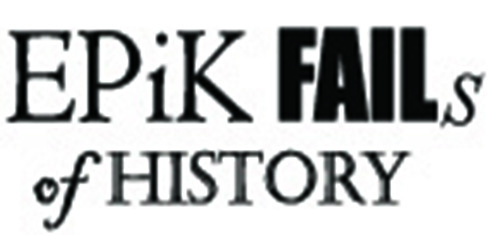
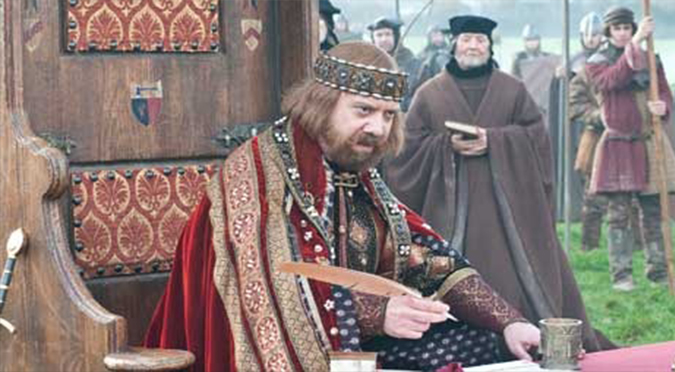

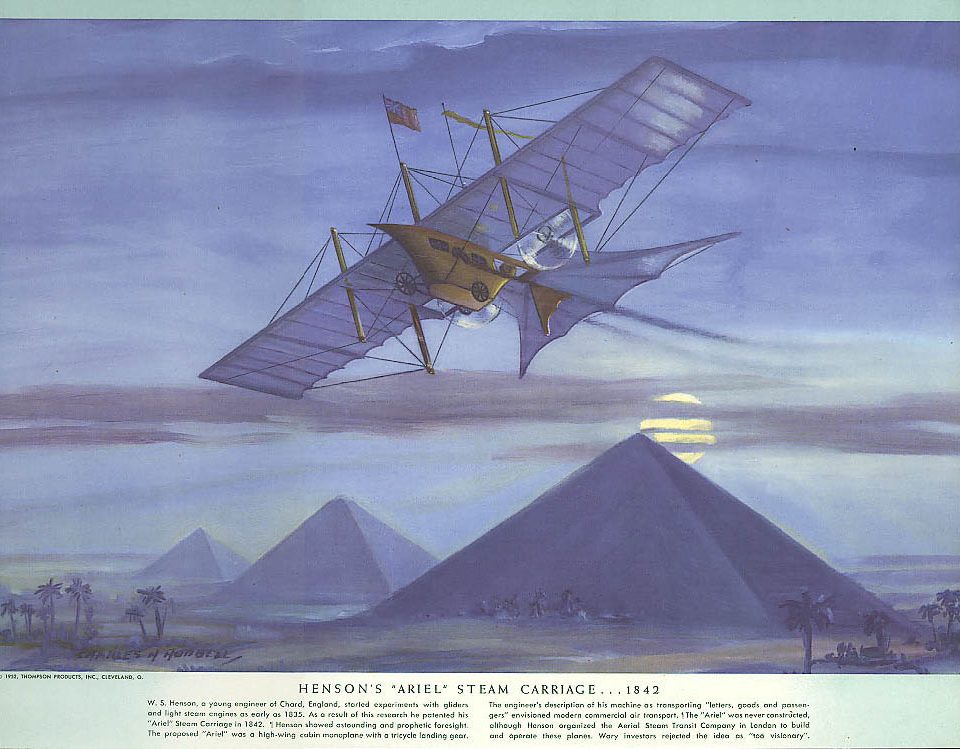
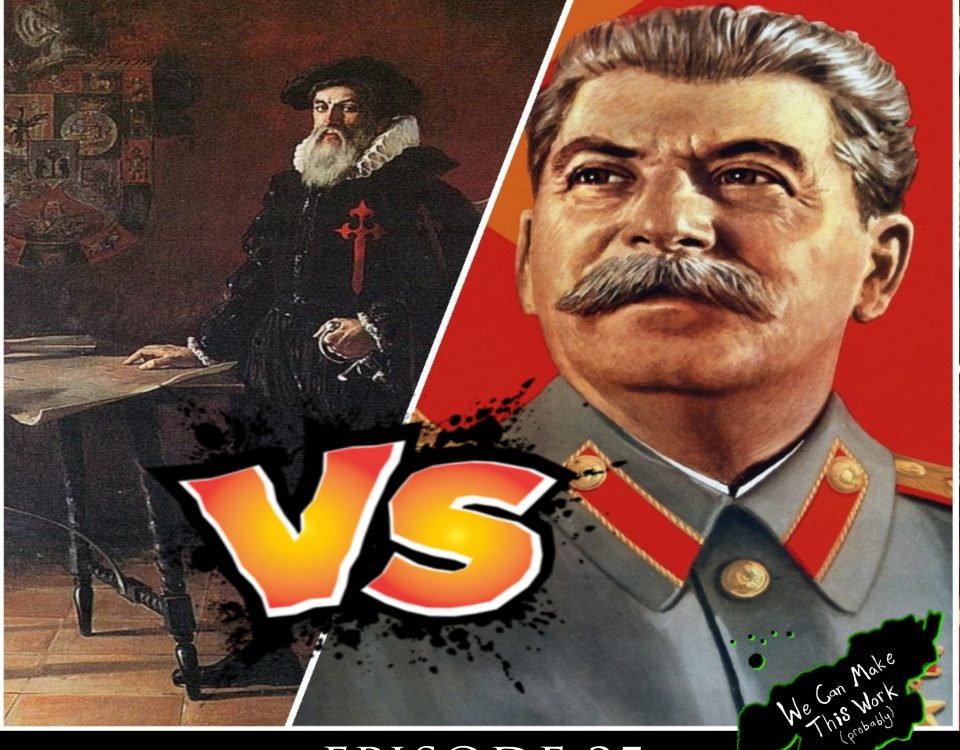
11 Comments
[…] France, the not-so-innocent Pope Innocent III kick started a ‘kick-starter’ campaign to conquer Muslim-held Jerusalem, instead the Christian […]
[…] a source of income to fund his expeditions, nothing more. He left the politics to his evil brother, Prince John (the villain of Robin Hood). In fact, Richard spent so much time in France that his infamous moniker ‘the Lion […]
Great stuff as usual!
[…] KING JOHN vs THE MAGNA CARTA […]
[…] essentially created by the very same governments they rose up against and stole from, sorta like Robin Hood and his merry men… except slightly more savage and um […]
[…] KING JOHN vs THE MAGNA CARTA […]
[…] KING JOHN vs THE MAGNA CARTA […]
[…] KING JOHN VS THE MAGNA CARTA […]
Do you have a good sense of humor .
I just wanted to find out if King John was really as big a jerk as they made him out to be in the movies. This was very entertaining, and I enjoyed it a lot more than I thought I would.
Thanks!
Thank you so much! Glad to hear when my old articles still hold up lol 🙂